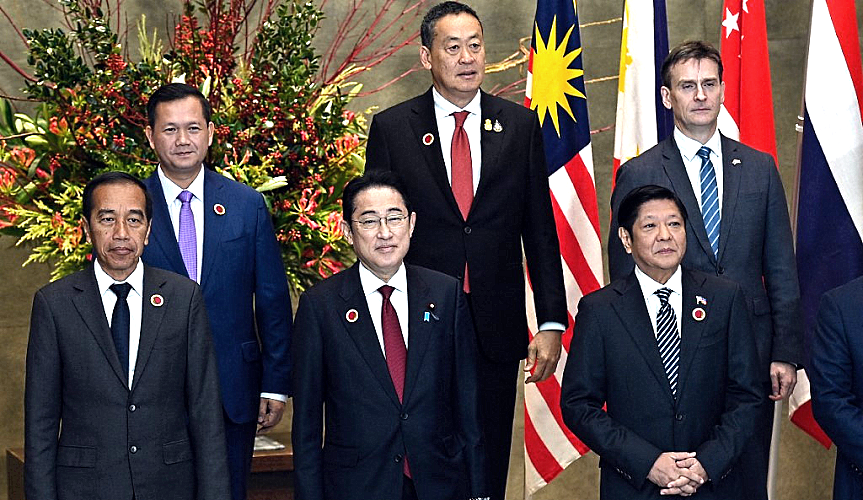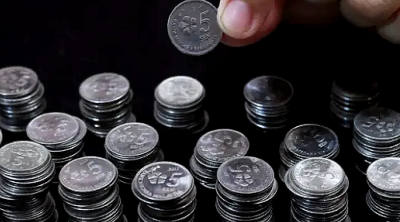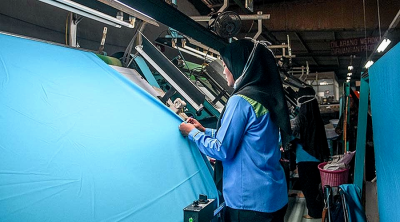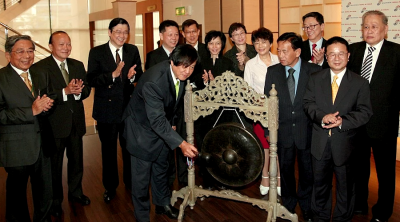
Japanese Prime Minister Fumio Kishida hosted ASEAN-Japan commemorative summit in Tokyo over the weekend.
Amid the rising power and growing influence of China and its escalating tensions with the United States in the region and the world, where does Japan stand in the hearts and minds of the Indonesian public?
For ASEAN, Japan is one of the most important partners not just to counterbalance the rivalry between China and the US, especially in the South China Sea.
But more importantly Japan is a role model for Southeast Asian neighbours with its norms, ethics and childhood education system.
China will likely continue to be ASEAN’s largest trading partner. But ASEAN will remain committed to Japan because it is the only country that can provide what it needs, apart from impressive economic statistics.
When asked about China, many people would express their admiration for the miraculous progress in its economy, technology and military.
In comparison, when asked about South Korea, the same people would first talk about K-pop and information and communications technology advancement.
How about Japan? It is no longer about economic and technological superiority, but rather the exemplary attitude and wisdom of the Japanese people.
Many Indonesian tourists who visit Japan admire the Japanese people’s exemplary discipline in all aspects of life, including their cleanliness and respect for other people.
The Japanese honour the norms and teachings of Islam, as evident in their production of halal food.
To me, one of the most prominent Japanese influences adopted here is the culture of queuing at MRT stations.
Japan built the modern transportation system in Jakarta along with the culture behind it.
Japan and ASEAN established their formal dialogue in 1973, one year before anti-Japanese riots erupted in Jakarta and Bangkok.
The two partners formalised their relationship in March 1977 by convening the ASEAN-Japan forum.
Based on ASEAN’s official data, Japan was ASEAN’s fourth largest external partner for both trade and investment in 2021.
The two-way trade reached US$240.2 billion. As of May 2023 the volume had increased by 17.3 percent year-on-year.
The total foreign direct investment (FDI) inflows from Japan to ASEAN have remained high at $11.9 billion, reflecting a growth of 0.7 percent year-on-year.
According to a BBC World Service poll conducted in 2011, 85 percent of Indonesians are highly positive about Japan, as against 84 percent of Filipinos.
Although the survey is dated, it is very likely that Indonesian people’s perception of Japan has remained unchanged.
During World War II Japan occupied the then Dutch East Indies for three years and six months until Sukarno-Hatta proclaimed Indonesia’s independence on Aug. 17, 1945.
Unlike Indonesia, in China and South Korea, the other victims of Japanese imperialism in Asia in the past, anti-Japanese sentiment remains intact.
Today, China is ASEAN’s largest trading partner and vice versa. Their trade hit $975 billion in 2021.
China is the fourth largest source of FDI in ASEAN, with a value of $13.8 billion in 2021.
China began its cooperation with ASEAN in 1991, one year after then Indonesian president Soeharto and Chinese prime minister Li Peng witnessed the signing of diplomatic relationship normalisation.
Indonesia had severed ties with China following an aborted coup blamed on the China-linked Indonesian Communist Party (PKI).
In 1996, China became an official dialogue partner of ASEAN.
Despite the good bilateral ties, however, many Indonesians and government officials remain hostile toward China, which I think is reciprocal.
We should also discuss the role of South Korea, ASEAN’s first dialogue partner along with Japan and China. ASEAN-South Korea relations began with a sectorial dialogue partnership in 1989.
South Korea became a full dialogue partnership of ASEAN by 1991.
The ASEAN-Japan summit to commemorate the 50th anniversary of their partnership, was organised amid the declining popularity of PM Kishida at home.
But whether he will cling to power or fall, Japan’s approach toward Indonesia and ASEAN will practically be unchanged.
During the summit Japan tried to attract attention to the South China Sea issue, which has put four ASEAN member states, Brunei, Malaysia, the Philippines, and Vietnam, in prolonged territorial disputes with China.
But as Tokyo realised that it would not be easy to persuade its ASEAN neighbours, Kishida also opened separate bilateral discussions with his guests.
In their joint statement on the ASEAN-Japan friendship and cooperation, the leaders reaffirmed “our commitment to upholding international law, including the United Nations Charter and the 1982 UN Convention on the Law of the Sea [UNCLOS].”
China has defied UNCLOS in claiming almost the entire South China Sea.
Both ASEAN and Japan also reiterated their commitment to maritime security cooperation and vowed to “strengthen dialogue and cooperation for the maintenance of maritime security and safety, maritime order based on the rule of law, including freedom and safety of navigation and overflight and unimpeded commerce”.
According to Asia Times, Southeast Asians are expected to be the biggest beneficiaries of new Japanese initiatives in the region, most notably Tokyo’s newly launched Official Security Assistance (OSA) package.
Malaysia for instance, will receive a 400 million yen (US$2.8 million) aid package to acquire “warning and surveillance” equipment from Japan, after it signed a comprehensive security partnership agreement a few weeks after Vietnam did the same thing. The Philippines has also received similar offers.
I always remember the conclusion of some senior government officials and politicians about Indonesia: Japan always delivers what it has promised.
How about China and South Korea, which together with Japan are the largest trading and economic partners of ASEAN?
Will PM Kishida or his successor realise the promise to lead Asia to decarbonisation and security in the region?
In their joint statement, Kishida and the leaders of ASEAN pledged to promote technological development and cooperation on renewable energy, the energy mix, energy efficiency and conservation, as well as enhancing awareness and sharing experience and knowledge on energy security, resilience and sustainability.
Japan also pledged to “enhance energy cooperation to promote the energy transition through various and practical pathways toward net-zero emissions/carbon neutrality, depending on the circumstances of each country, including through initiatives and activities under the Asia Zero Emission Community [AZEC] platform.”
Many things can happen in the future, but I believe Japan will keep its word for the good of the two dialogue partners.
Many have predicted China will soon replace the US as the world’s economic and military superpower. Japan will, however, remain an influential and trusted partner for ASEAN.
Japan’s position is irreplaceable for ASEAN despite China’s rising power and influence. At the very least ASEAN needs both of them.
ADVERTISEMENT
ADVERTISEMENT








































